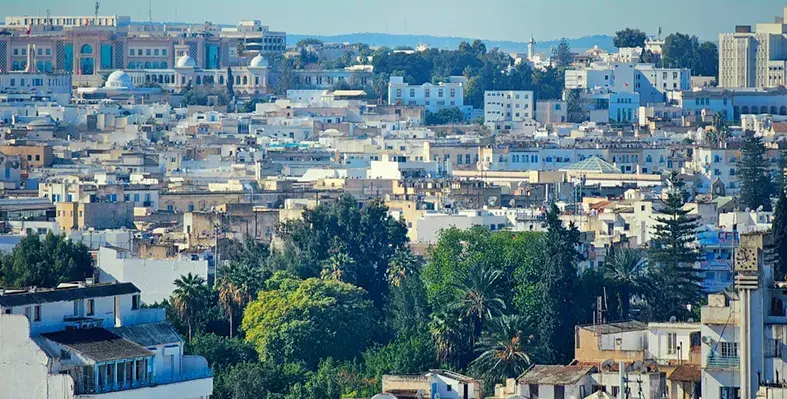
Starlink faces affordability, adoption challenges locally
South Africa’s Starlink debate raises questions on affordability, adoption, and opportunities for local WISPsby Jens Langenhorst, specialist RF engineer and vice chair of WAPA
South African media has been flooded with coverage of Starlink for months. Every regulatory update, ministerial statement, or parliamentary objection makes headlines. Amid this intense attention, one question stands out: why is Starlink drawing so much focus?
The regulatory hurdles facing Elon Musk’s satellite service are not unique. Major global technology companies have long navigated South Africa’s Broad-Based Black Economic Empowerment (B-BBEE) framework when entering the market.
According to Paul Colmer, Executive Member at WAPA, what sets Starlink apart is its requirement for a radio license. Section 9(2)(b) of the Electronic Communications Act mandates 30% equity ownership by historically disadvantaged South Africans, yet SpaceX’s global policy forbids local equity dilution. This conflict has played out in government gazettes, ministerial directives, and parliamentary committee objections throughout 2025.
In December 2025, Communications Minister Solly Malatsi issued a directive instructing ICASA to align its regulations with the ICT Sector Code, which allows Equity Equivalent Investment Programmes (EEIPs) as an alternative to direct ownership. SpaceX has pledged R2.5 billion in local investment, including R500 million to connect 5,000 schools with free internet and equipment. Regulatory clarity now rests with ICASA, and ministerial pressure alone cannot resolve the process.
Yet the media attention raises another question: why the focus on Starlink when OneWeb is already providing LEO services in South Africa through partners like Paratus and Q-KON Africa, and Amazon’s Project Kuiper is preparing to launch? Public interest is overwhelmingly concentrated on Starlink, overshadowing the fundamental issue: who actually needs this service?
Affordability matters
Starlink promises broadband anywhere with fiber-like speeds. But affordability is relative. Pricing in Eswatini and Lesotho indicates monthly subscriptions of R900–R950, plus a R3,800 one-time equipment cost for the Starlink Mini kit. In comparison, FTTH services in South Africa typically cost R950 per month for uncapped 100Mbps, placing Starlink at the premium end of the market.
ICASA’s 2023 report notes 2.7 million fixed broadband subscriptions, 2.47 million of which are FTTH. Households able to pay R950 per month fall largely within LSM7–10, representing 1.3–2.5 million homes. Many of these households already have FTTH or fixed wireless services. Jens Langenhorst points out that the addressable market for Starlink in South Africa is thus limited to incremental adoption, backup use, or mobile connectivity during travel, rather than representing a transformative opportunity.
Lower-income households are being served by innovative WISPs. Fibertime has connected over 250,000 homes with uncapped 100Mbps at R5 per day, targeting 2 million homes by 2028. TooMuchWifi serves over 70 communities in the Western Cape with uncapped internet for over 1 million users at the same daily rate. This starkly contrasts with Starlink’s premium pricing.
Opportunity in Remote Infrastructure
Starlink’s strength lies in areas where traditional infrastructure is not viable: remote farms, forestry stations, villages, and schools. Local WISPs have a major role here. While Starlink has committed to providing free connectivity for 5,000 schools, it is a satellite service, not a full infrastructure provider.
This opens opportunities for WISPs to build networks around Starlink deployments. They can handle last-mile distribution, equipment maintenance, troubleshooting, and integration with local systems. As Langenhorst notes, fixed wireless and fiber solutions have historically failed in these regions because they deliver connectivity only to a single point, not throughout entire campuses or farms. Starlink will face similar challenges without local partners bridging the gap from terminal to end user.
Market Context and Competition
Globally, Starlink has over 7 million subscribers, making South Africa an attractive market even with limited uptake. Demand was evident when over 12,000 “illegal” terminals were sold between 2023 and early 2024, despite regulatory uncertainty.
Starlink will serve a purpose, particularly in areas lacking robust broadband coverage. But South Africa is less critical strategically, and competitors like Amazon’s Project Kuiper and China’s Thousand Sails constellation will be ready to enter as regulatory processes conclude.
LEO satellite services will eventually cover significant parts of South Africa, though universal access remains unlikely. Jens Langenhorst emphasizes that success will depend on strategies tailored to income levels and collaboration with local infrastructure providers to turn satellite connectivity into meaningful internet access for schools, farms, and rural communities.


























